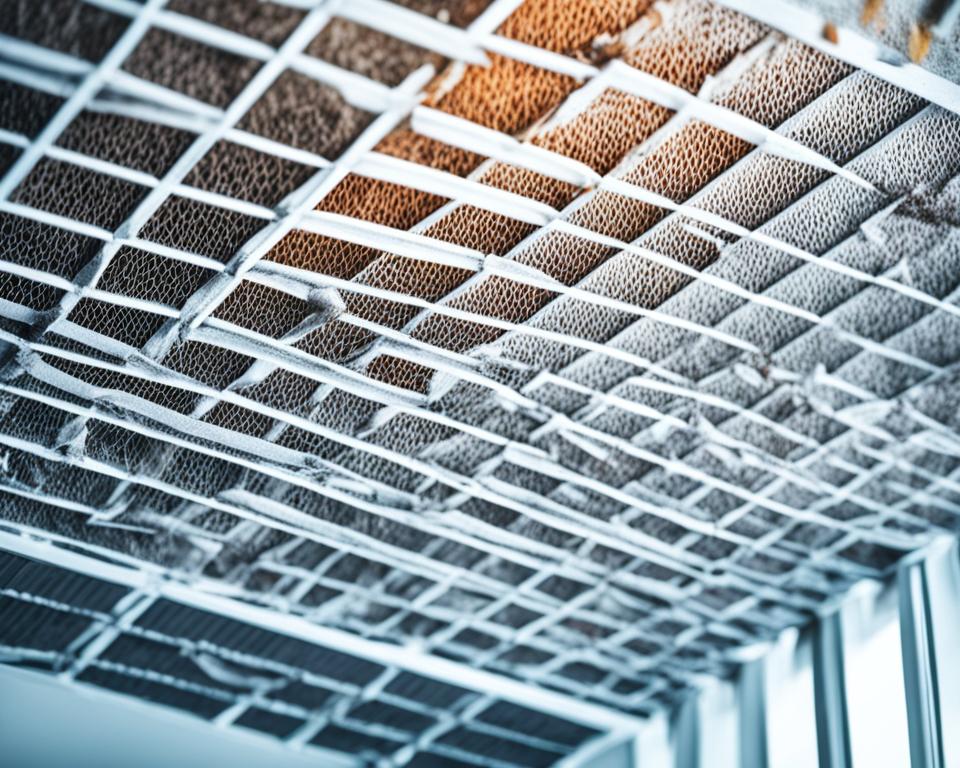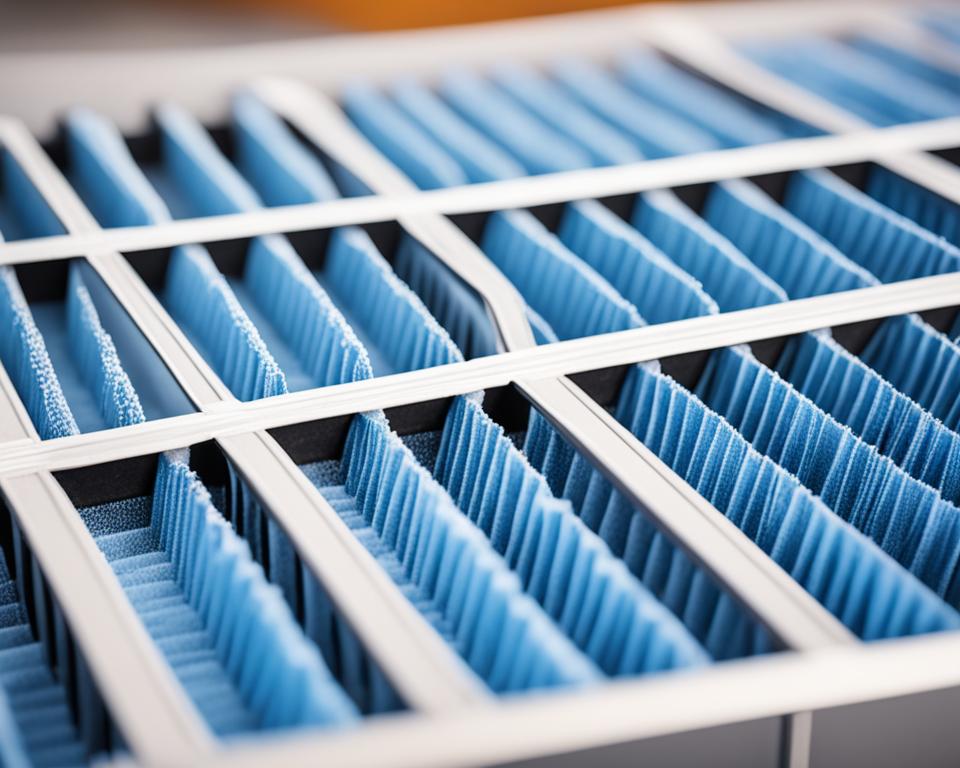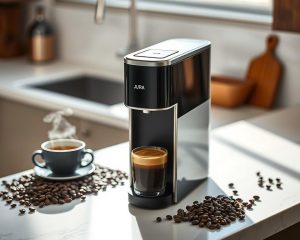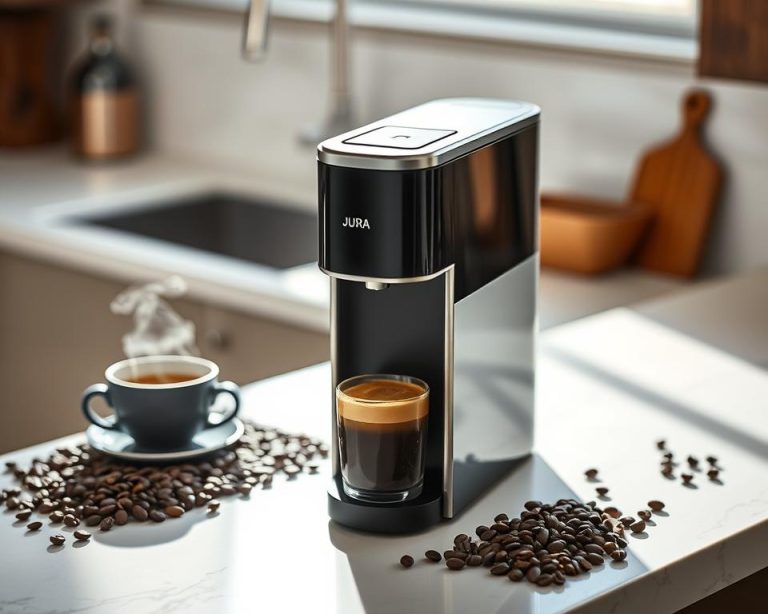Furnace air filters play a crucial role in maintaining the efficiency and performance of your HVAC system. They are responsible for trapping airborne particulates, improving indoor air quality, and ensuring optimal energy usage. This comprehensive guide will help you understand the importance of furnace air filters, explore the different types available, and provide tips on selecting and maintaining the best filters for your home.
Read more interesting information at ::blackcerenity
Understanding Furnace Air Filters
Furnace air filters are an essential component of your HVAC system, designed to trap and remove airborne particles, allergens, and contaminants from the air circulating throughout your home. These furnace air filters play a crucial role in maintaining the efficiency and performance of your hvac filters, helping to improve indoor air quality, energy efficiency, and the overall lifespan of your HVAC equipment.
What Are Furnace Air Filters?
Furnace air filters are filtration devices installed within the ductwork of your HVAC system, responsible for removing a wide range of air filter types from the air, including dust, pollen, pet dander, and other airborne pollutants. These filters come in various materials, sizes, and designs to suit the specific needs of your home and HVAC system.
Why Are They Important?
The importance of air filter importance cannot be overstated. By trapping and removing these airborne particles, furnace air filters help maintain the air filter function of your indoor environment, contributing to improved respiratory health, reduced allergy symptoms, and a more comfortable living space. Additionally, well-maintained furnace air filters can enhance the energy efficiency of your HVAC system, leading to lower utility bills and extended equipment lifespan.
Types of Furnace Air Filters
There are several types of furnace air filters available on the market, each with its own unique features and performance characteristics:
- Fiberglass filters: These basic, affordable options effectively trap larger particles but may not be as efficient at capturing smaller airborne contaminants.
- Pleated filters: Featuring a pleated design, these filters offer improved filtration performance while still maintaining adequate airflow through the HVAC system.
- HEPA (High-Efficiency Particulate Air) filters: HEPA filters excel at removing even the smallest particles, making them an excellent choice for those with severe allergies or respiratory sensitivities.
- Washable filters: Reusable and designed for easy cleaning, washable filters can provide long-term cost savings and reduce waste compared to disposable options.
Understanding the characteristics and benefits of these air filter types will help you select the best furnace air filters for your home and HVAC system, ensuring optimal indoor air quality and energy efficiency.
Choosing the Right Furnace Air Filter
When selecting the right furnace air filter for your home, it’s crucial to consider your HVAC system’s requirements, including the filter size, airflow needs, and your indoor air quality goals. Understanding air filter ratings, such as MERV (Minimum Efficiency Reporting Value), can help you choose a filter that effectively removes pollutants while maintaining proper airflow and energy efficiency.
Determine Your HVAC System’s Requirements
The first step in choosing the right furnace air filter is to identify the specific requirements of your HVAC system. This includes determining the filter size that fits your system, as well as the airflow needs to ensure optimal performance. By understanding these factors, you can select a filter that will not restrict airflow and compromise the efficiency of your HVAC system.
Consider Air Filter Ratings
Evaluating air filter ratings is crucial when selecting the most effective furnace air filter for your home. The MERV rating, which ranges from 1 to 16, indicates the filter’s ability to capture different sizes of airborne particles. A higher MERV rating typically means the filter can remove smaller particles, such as smoke and bacteria, but may also restrict airflow more than lower-rated filters. Weighing the trade-offs between filter efficiency and airflow can help you find the right balance for your indoor air quality and HVAC system requirements.
Benefits of Using High-Quality Furnace Air Filters
Investing in high-quality furnace air filters can provide numerous benefits for your home and HVAC system. Improved indoor air quality through the removal of allergens, pollutants, and contaminants can lead to better respiratory health and a more comfortable living environment. High-efficiency filters can also enhance your HVAC system’s energy efficiency, resulting in lower utility bills. Additionally, using the right filters can prolong the lifespan of your HVAC equipment, reducing the need for costly repairs or replacements.
Improved Indoor Air Quality
High-quality furnace air filters are designed to capture a wide range of airborne particles, including pollen, dust, and pet dander, which can significantly improve the indoor air quality in your home. By effectively trapping these pollutants, the filters help create a cleaner, healthier living environment, reducing the risk of respiratory issues and allergic reactions for you and your family.
Enhanced Energy Efficiency
Choosing high-quality furnace air filters can also contribute to the overall energy efficiency of your HVAC system. These filters maintain proper airflow, allowing your system to operate more effectively and consume less energy. This can translate to lower utility bills and a more cost-effective heating and cooling solution for your home.
Prolonged HVAC System Lifespan
Using the right furnace air filters can have a significant impact on the lifespan of your HVAC system. High-quality filters help protect the system’s internal components from accumulation of dust, debris, and other contaminants, reducing the wear and tear on critical parts. This can ultimately lead to fewer breakdowns, less frequent repairs, and a longer overall lifespan for your HVAC equipment, saving you money in the long run.
Furnace Air Filter Maintenance
Proper maintenance of your furnace air filters is essential for ensuring optimal performance and longevity of your HVAC system. This includes regularly replacing the filters according to the manufacturer’s recommendations, typically every 1-3 months, depending on factors like home size, pet ownership, and filter type. Additionally, learning the correct installation techniques can help you ensure a proper seal and maximize the filter’s efficiency.
Replacement Schedule
Adhering to a regular filter replacement schedule is crucial for maintaining your HVAC system’s health and indoor air quality. The frequency of replacement can vary depending on factors such as the size of your home, the number of occupants, and whether you have pets. As a general guideline, it’s recommended to replace your furnace air filters every 1-3 months, or as specified by the manufacturer.
Proper Installation Techniques
Ensuring the correct installation of your furnace air filters is essential for their optimal performance. Follow the manufacturer’s instructions carefully, making sure the filter is properly sized, oriented, and sealed within the ductwork. Improper installation can lead to air leaks, reduced filtration efficiency, and potential damage to your HVAC system. Take the time to learn and apply the proper filter installation techniques to maintain the health and efficiency of your home’s climate control system.
furnace air filters
When it comes to furnace air filters, the options are vast and varied. From the classic fiberglass filters to the more advanced HEPA and washable varieties, each type offers unique features and benefits to homeowners. Understanding the differences between these furnace air filters and HVAC filters can help you make an informed decision that best suits your filter type, filter features, and filter comparison needs.
Fiberglass filters, known for their affordability, provide basic filtration, capturing larger particles like dust and lint. Pleated filters, on the other hand, boast a higher filter efficiency, trapping smaller airborne contaminants while maintaining adequate airflow. HEPA (High-Efficiency Particulate Air) filters are renowned for their exceptional filter efficiency, capable of removing up to 99.97% of airborne particles, making them a popular choice for those with heightened indoor air quality concerns.
For homeowners seeking a reusable option, washable furnace air filters provide a cost-effective and environmentally-friendly alternative. These filters can be cleaned and reused, reducing the frequency of replacement and the environmental impact of disposable filters.
| Filter Type | Efficiency | Maintenance | Airflow | Cost |
|---|---|---|---|---|
| Fiberglass | Low | Low | High | Low |
| Pleated | Medium to High | Medium | Medium | Medium |
| HEPA | High | High | Low | High |
| Washable | Medium to High | High | Medium | Medium to High |
By exploring the filter types, filter features, and filter comparisons, homeowners can make an informed decision that balances their indoor air quality needs, HVAC system requirements, and budget constraints, ensuring the optimal performance and efficiency of their furnace air filtration system.
Allergen Reduction with Furnace Air Filters
Furnace air filters play a crucial role in reducing indoor allergens, which can significantly improve the air quality and respiratory health of your home’s occupants. By understanding the most common indoor allergens, you can choose air filters with the appropriate efficiency ratings to effectively capture and remove these particles from the air.
Common Indoor Allergens
Some of the most prevalent indoor allergens include pollen, dust mites, and pet dander. These microscopic particles can trigger allergic reactions, causing symptoms such as sneezing, itchy eyes, and congestion. Furnace air filters with high Minimum Efficiency Reporting Value (MERV) ratings are designed to trap these allergens, helping to maintain a healthier indoor environment.
Air Filter Efficiency for Allergies
When selecting furnace air filters for allergy relief, it’s essential to choose filters with a MERV rating of 11 or higher. These high-efficiency filters are capable of capturing 95% or more of airborne particles, including the smallest allergens that can easily pass through standard fiberglass filters. By using furnace air filters for allergies, you can effectively reduce the presence of indoor allergens and promote allergen reduction in your home, leading to improved air filter efficiency and better hvac filters and allergies management.

Energy-Efficient Furnace Air Filters
Selecting energy-efficient furnace air filters can have a significant impact on your HVAC system’s performance and your home’s energy consumption. These filters not only help maintain indoor air quality but also play a crucial role in optimizing your home’s energy efficiency.
The Importance of Air Flow
Maintaining proper airflow through your furnace air filters is crucial for the overall efficiency of your HVAC system. Restricted airflow can cause your system to work harder, leading to increased energy usage and higher utility bills. By choosing energy-efficient furnace air filters that balance high efficiency with low airflow resistance, you can ensure optimal air circulation and enjoy the benefits of improved energy savings and a more comfortable living environment.
Choosing Energy-Efficient Filters
When selecting energy-efficient furnace air filters, look for options that are designed to provide high filter efficiency without compromising airflow. These filters can help reduce the strain on your HVAC system, resulting in lower energy usage and HVAC energy savings. By making an informed choice, you can contribute to the overall energy efficiency of your home and create a more sustainable living environment.
Filtration Systems for HVAC
In addition to furnace air filters, there are other hvac filtration systems that can enhance the indoor air quality in your home. These comprehensive whole-house air filtration solutions, integrated directly with your HVAC ductwork, provide a thorough cleaning of the air circulating throughout the entire living space.
Whole-House Filtration
Whole-house air filtration equipment offers a centralized approach to improving indoor air quality solutions. These systems are designed to work seamlessly with your existing HVAC system, trapping a wide range of airborne pollutants, allergens, and contaminants before they can circulate throughout your home. By addressing the air quality at the source, whole-house filtration ensures a consistently clean and healthy living environment for your family.
Portable Air Purifiers
While whole-house filtration systems provide comprehensive coverage, portable air purifiers can also be a valuable addition to your home’s air filtration strategy. These standalone units are ideal for targeting specific rooms or areas with specialized filtration needs, such as bedrooms or home offices. Portable air purifiers can effectively remove a variety of airborne particles, offering a supplementary solution to your overall indoor air quality improvements.
Clean Air Circulation for Healthy Living
Maintaining clean air circulation throughout your home is essential for creating a healthy living environment. Proper airflow, combined with effective air filtration, can help remove pollutants, allergens, and other contaminants, improving the overall indoor air quality and contributing to the well-being of your family.
By optimizing the performance of your HVAC system, you can ensure that the air is continuously circulated and filtered, removing harmful particles and providing your family with a clean, healthy living space. Regular maintenance and the use of high-quality air filters can enhance the efficiency of your system, reducing energy consumption and improving overall comfort.
Investing in strategies to enhance clean air circulation is a proactive step towards creating a healthy living environment for you and your loved ones. By prioritizing air flow optimization and maintaining the indoor air quality in your home, you can enjoy the benefits of improved respiratory health, reduced allergy symptoms, and a more comfortable, rejuvenating living experience.
Comparing Air Filter Ratings
Selecting the right furnace air filter for your home requires a deeper understanding of the various rating systems used to measure filter efficiency. These ratings provide valuable insights into a filter’s ability to capture and remove airborne particles of different sizes, allowing you to choose the most effective solution for your indoor air quality needs.
MERV Ratings Explained
The MERV (Minimum Efficiency Reporting Value) rating system is widely used to assess the performance of furnace air filters. MERV ratings range from 1 to 16, with higher ratings indicating greater filtration efficiency. Filters with a MERV rating of 8 or higher are generally considered effective at capturing air filter ratings such as dust, pollen, and pet dander, while MERV 11-16 filters are better suited for trapping merv ratings smaller particles like bacteria and smoke.
MPR and FPR Ratings
In addition to MERV, two other rating systems are commonly used: MPR (Microparticle Performance Rating) and FPR (Filter Performance Rating). MPR measures a filter’s ability to capture mpr ratings extremely small particles, with ratings ranging from 300 to 2,400. FPR, on the other hand, provides an overall assessment of a filter’s fpr ratings efficiency in capturing a wide range of particle sizes, with ratings from 1 to 16. These filter efficiency comparison ratings can be useful in determining the most appropriate filter for your specific air quality needs.
Air Filter Replacement: A Step-by-Step Guide
Replacing your furnace air filters is a straightforward process that can have a significant impact on your HVAC system’s performance and your home’s indoor air quality improvement. This step-by-step guide will walk you through the necessary preparation, removal of the old filter, and proper installation of the new filter, ensuring a smooth and effective furnace air filter replacement process.
Preparing for Replacement
Before you begin the replacement process, take a moment to gather the necessary tools and materials. This includes the correct size air filter installation for your HVAC system, a clean cloth or paper towel, and any specific instructions from the filter manufacturer. Additionally, make sure to turn off the power to your furnace to ensure your safety during the filter maintenance procedure.
Removing the Old Filter
Locate the filter compartment in your HVAC system, typically located behind a grille or access panel. Gently remove the old filter, taking note of its orientation and position. Use the clean cloth or paper towel to wipe down the interior of the filter compartment, removing any accumulated dust or debris that may have built up over time.
Installing the New Filter
Carefully insert the new furnace air filter replacement into the filter compartment, ensuring it is properly aligned and seated. Double-check the filter’s orientation to ensure it is installed correctly, as specified by the manufacturer. Once the new filter is in place, replace the access panel or grille and restore power to your HVAC system.
Remember to record the date of the air filter installation and set a reminder for your next scheduled replacement, typically every 1-3 months, depending on your home’s specific needs and the filter type used. Proper hvac system maintenance through regular filter changes is essential for maintaining optimal system performance and indoor air quality.
Indoor Air Quality and HVAC Filters
Furnace air filters play a vital role in improving indoor air quality, which can have a direct impact on the health and well-being of your family. By effectively trapping airborne particles, allergens, and contaminants, high-quality HVAC filters can help reduce the prevalence of respiratory issues, allergies, and other health concerns, creating a healthier living environment.
Improving Indoor Air Quality
The indoor air quality in your home is largely influenced by the efficiency of your furnace air filters. These filters act as a barrier, capturing a wide range of pollutants, including dust, pollen, pet dander, and even microscopic airborne particles. By ensuring your HVAC system is equipped with the right air filters, you can significantly improve the overall air quality and create a cleaner, more breathable atmosphere for your family.
Health Benefits of Clean Air
Breathing in clean, filtered air can have numerous health benefits, especially for individuals with respiratory conditions or allergies. High-performance furnace air filters can effectively remove these irritants, reducing the risk of asthma attacks, allergy symptoms, and other respiratory distress. Additionally, improved indoor air quality can contribute to enhanced overall well-being, better sleep, and a stronger immune system.

Furnace Filter Maintenance Tips
Maintaining your furnace air filters is essential for ensuring optimal HVAC system efficiency and indoor air quality. Regular filter cleaning, according to the manufacturer’s instructions, can help extend the filter’s lifespan and maintain its effectiveness. Additionally, closely monitoring air flow through the filter can indicate when it’s time for filter replacement, allowing you to proactively address any issues and maintain a healthy, energy-efficient home.
Regular Cleaning
Regularly cleaning your furnace air filters is a simple, yet crucial step in filter maintenance. Depending on your home’s environment and the type of filter, you may need to clean it every one to three months. Follow the manufacturer’s guidelines to ensure proper cleaning techniques, as this can vary between filter materials and styles. By keeping your filters clean, you’ll help maintain optimal HVAC system efficiency and indoor air quality.
Monitoring Air Flow
Closely monitoring the air flow through your furnace air filters can provide valuable insights into when it’s time for replacement. As filters become clogged with dust, debris, and other particles, the air flow will start to diminish. This reduction in air flow can negatively impact your HVAC system’s efficiency, leading to higher energy bills and potential system damage. By regularly checking the air flow, you can proactively replace your filters before they become too restrictive, ensuring your home maintains a healthy, energy-efficient environment.
Conclusion
Furnace air filters are the unsung heroes of your HVAC system, playing a crucial role in maintaining its efficiency and your home’s overall indoor air quality. By understanding the different types of furnace air filters and their unique features, you can make an informed decision that caters to your specific needs, whether it’s improved indoor air quality, enhanced energy efficiency, or a healthier living environment.
Investing in high-quality HVAC filters can lead to tangible benefits, from cleaner air that reduces respiratory issues and allergies to cost savings on your energy bills. Proper filter maintenance, including regular replacement and monitoring of airflow, ensures that your filtration system continues to perform at its best, safeguarding the longevity of your HVAC system.
As you embark on your journey to optimize your home’s air quality and energy efficiency, remember that the humble furnace air filter is a powerful ally in creating a healthy living environment for you and your family. By staying informed and proactive, you can breathe easier, save money, and enjoy the comfort of a well-maintained HVAC system.
















+ There are no comments
Add yours